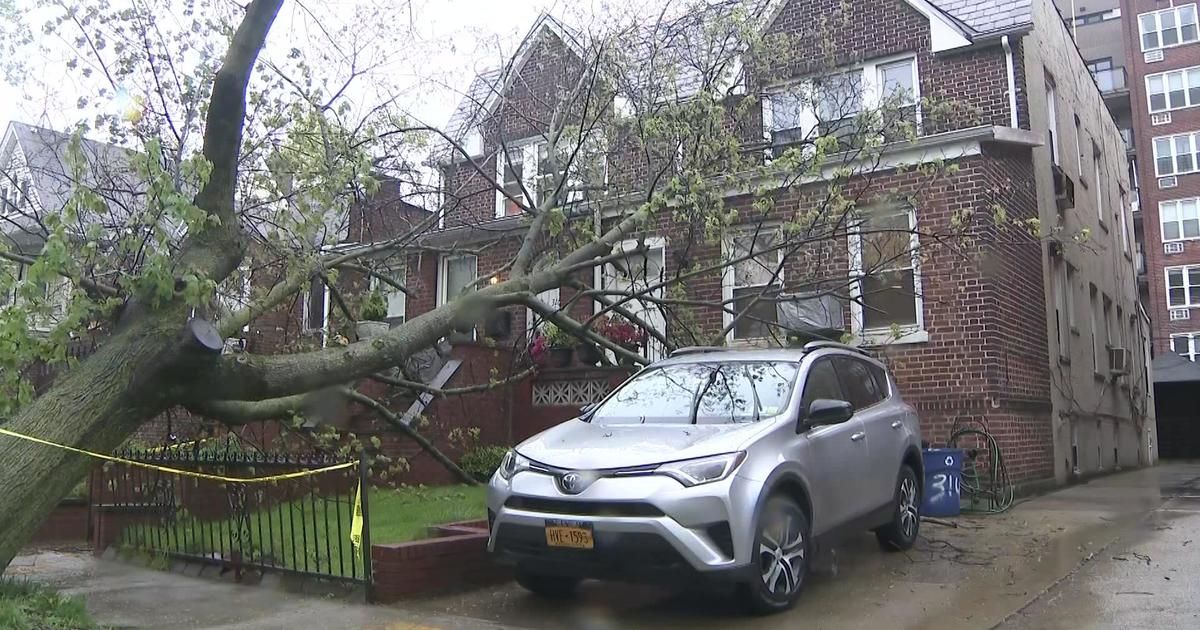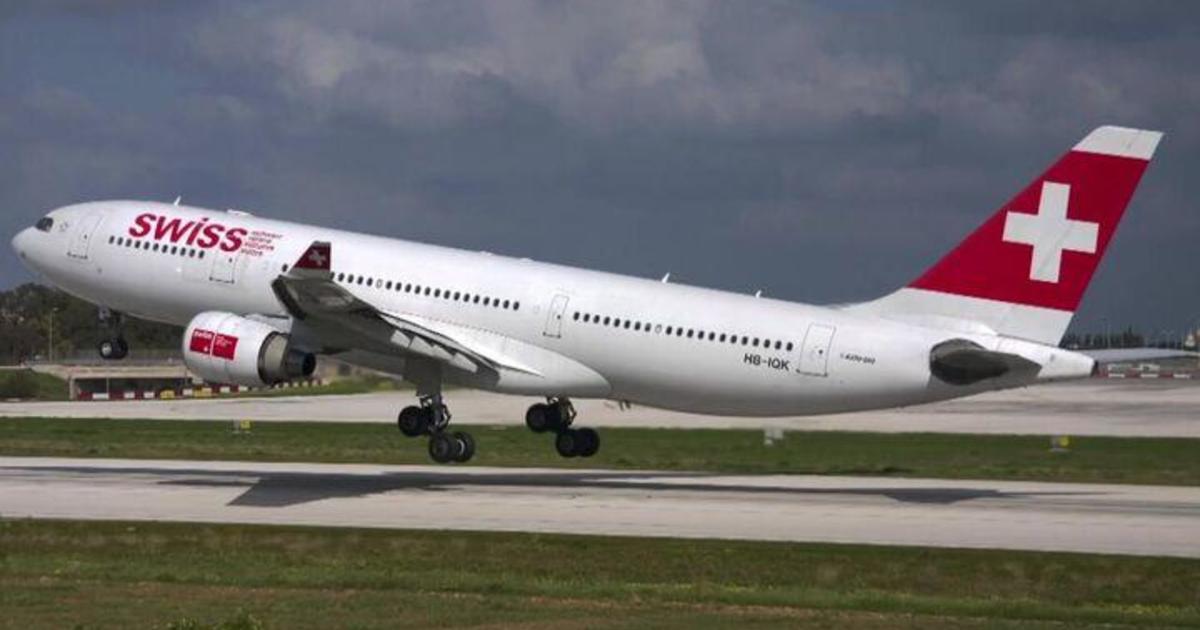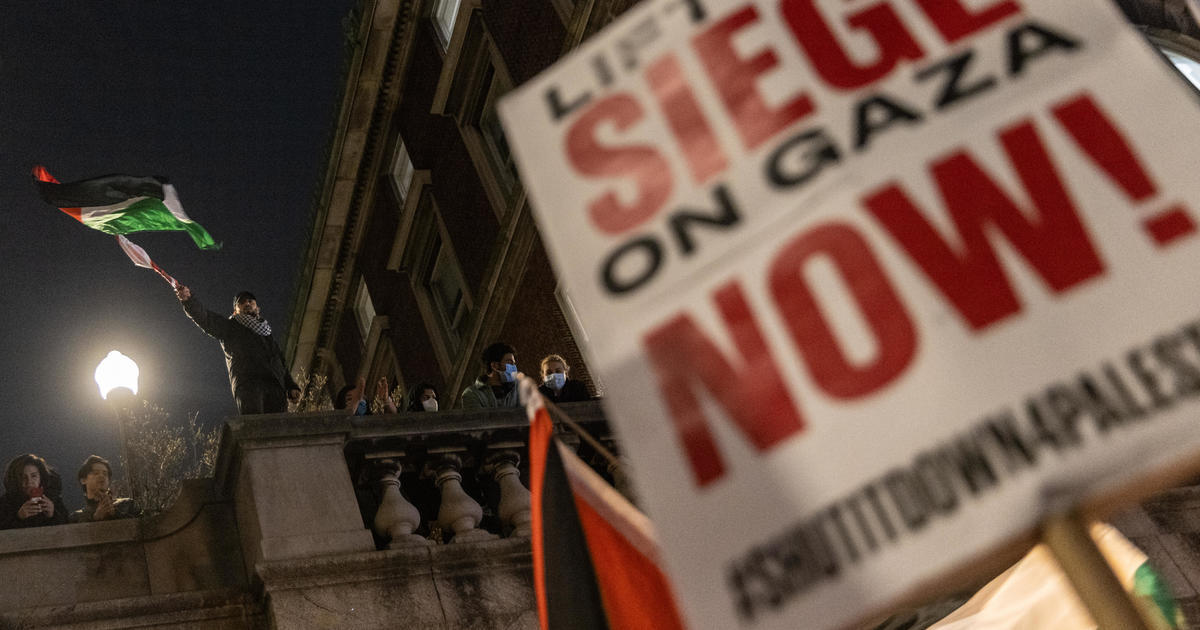Scottish Prosecutors: 2 Libyans Are Lockerbie Bomb Suspects
LONDON (CBSNewYork/AP) -- A quarter century after one of the worst terror attacks in British history, prosecutors say they have identified two new Libyan suspects in the bombing of a New York-bound Pan Am jet over Lockerbie, Scotland, and want U.S. and Scottish investigators to interview them in Tripoli.
Given Libya's instability, that may be a remote prospect.
Scotland's Crown Office said Lord Advocate Frank Mulholland and U.S. Attorney General Loretta Lynch had agreed "that there is a proper basis in law in Scotland and the United States to entitle Scottish and U.S. investigators to treat two Libyans as suspects in the continuing investigation into the bombing" of Pan Am flight 103.
It said Scotland and the U.S. were asking Libyan authorities to help Scottish detectives and FBI officers interview the suspects in Tripoli. The office said the Libyans are suspected of involvement with Abdel Baset al-Megrahi, the only person convicted in the attack.
A bomb shattered the Boeing 747 as it flew over Scotland on Dec. 21, 1988, killing all 259 people aboard the plane and 11 on the ground. Thirty-five victims were Syracuse University students flying home through JFK Airport for Christmas.
The complex and unfinished Lockerbie investigation is tied up with Libya's relationship with the West. In 1988, dictator Moammar Gadhafi's Libya was a pariah state accused by Western governments of sponsoring terrorism.
In 1999, Gadhafi handed over al-Megrahi and a second suspect -- later acquitted -- to Scottish authorities after years of punishing U.N. sanctions. Four years later, in 2003, Gadhafi acknowledged responsibility -- though not guilt -- for the Lockerbie bombing and paid compensation of about $2.7 billion to the Lockerbie victims' families. He also pledged to dismantle all weapons of mass destruction and joined the U.S.-led fight against terrorism.
After Gadhafi was overthrown and killed in 2011, Britain asked Libya's new rulers to help fully investigate. But the country has since been wracked by chaos and political violence, stalling efforts to collect evidence and interview suspects.
U.S. Department of Justice spokesman Marc Raimondi said Thursday that "we remain committed to pursuing justice on behalf of the victims of this terrorist attack that took the lives of 189 Americans and many others."
He said he could not comment on "specific investigate steps," but the department confirmed Lynch, the U.S. attorney general, and Scottish official Mulholland had met.
Prosecutors did not name the two Libyans, in keeping with British practice of not identifying suspects until they are charged.
British officials have previously asked to interview Abdullah al-Senoussi, Gadhafi's former spymaster, over the Lockerbie bombing.
A long investigation by Ken Dornstein, a documentary filmmaker whose brother died in the attack, identified another Libyan, Abu Agila Mas'ud, as the possible bomb-maker. He has not been named by U.S. or Scottish officials as a suspect.
Both were imprisoned in Libya after the 2011 fall of Gadhafi, and al-Senoussi has been sentenced to death. The crimes they have been charged with in Libya are not related to the Lockerbie bombing.
Prosecutors believe flight 103 was brought down by a bomb in a suitcase that was loaded onto a flight from Malta and then booked through to Pan Am 103 via Frankfurt.
Al-Megrahi, a former Libyan intelligence officer, was convicted in 2001 of planting the bomb and sentenced to 27 years in prison. But investigators have always believed others were involved. And critics of al-Megrahi's conviction question the reliability of the evidence used to convict him.
Al-Megrahi's conviction was largely based on the testimony of a shopkeeper who identified him as having bought a shirt in his store in Malta, scraps of which were later found wrapped around a timing device discovered in the wreckage of the airliner.
Al-Megrahi denied any involvement in the bombing. He was freed from a Scottish jail in 2009 on compassionate grounds because he had cancer -- to the outrage of many victims' families. He died in Libya in 2012 still protesting his innocence.
Some families of Lockerbie victims remain skeptical that al-Megrahi was involved.
Jim Swire, whose daughter Flora was killed in the bombing, believes al-Megrahi was wrongly convicted, "so to try to bolt two more names on top of that is a very difficult situation."
He told the BBC that any new suspects would have to be prosecuted with "very much better evidence than was used to achieve the conviction of (al-) Megrahi."
(TM and © Copyright 2015 CBS Radio Inc. and its relevant subsidiaries. CBS RADIO and EYE Logo TM and Copyright 2015 CBS Broadcasting Inc. Used under license. All Rights Reserved. This material may not be published, broadcast, rewritten, or redistributed. The Associated Press contributed to this report.)



